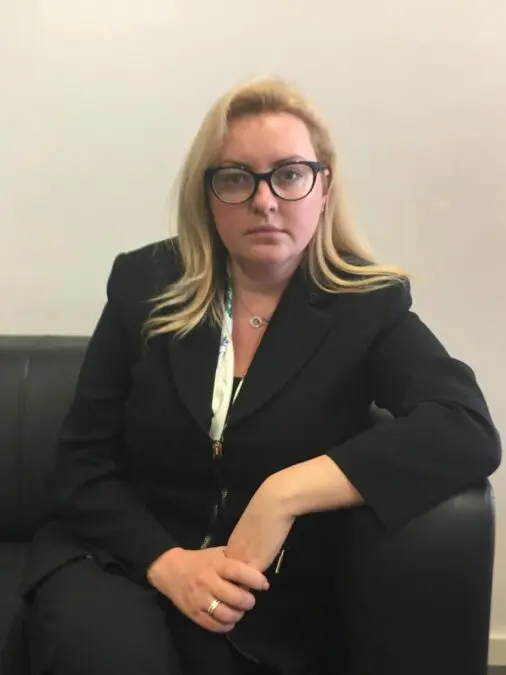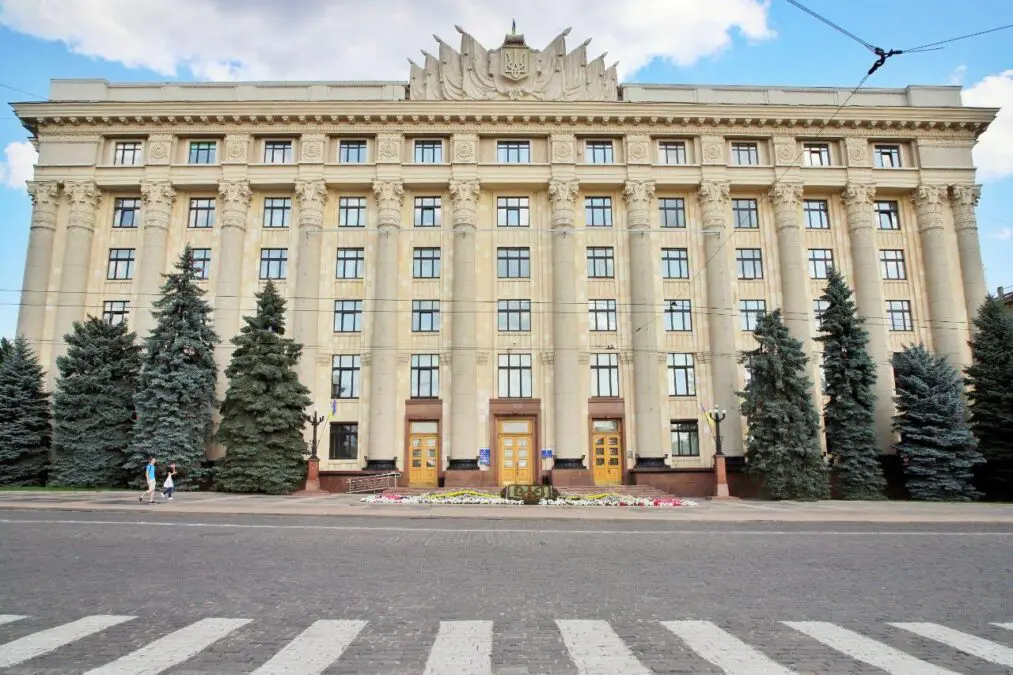“Our country will win and we will rebuild Kharkiv,” said Tatiana Yehorova-Lutsenko, chairwoman of the Council of Kharkiv Oblast (2.6 million inhabitants) when she talked with Willy Fautré, Director of Human Rights Without Frontiers in Brussels at the end of March.

For days and days since the outbreak of the war in Ukraine, Russia has been attacking the city of Kharkiv (1.5 million inhabitants) close to the Russian border with artillery, rockets, cluster munitions and guided missiles, a relentless barrage. Most Kharkiv residents are Russian-speaking and many are ethnic Russians. They never asked or needed to be liberated from “Kiyv’s nazi regime” as Vladimir Putin qualifies the democratically elected government of Ukraine headed by President Volodymyr Zelensky and Prime Minister Denys Shmyhal, both of Jewish descent, as was former PM Honcharuk.
Q: Tatiana Yehorova-Lutsenko, can you tell us about your political background and explain to us what is the Kharkiv Oblast Council?
I was elected on the list of President Zelensky’s party, Servant of the People, and I was on top of the list of his candidates. I am the first woman to chair the council of the oblast (region). It is composed of 120 members democratically elected for a five-year term and is the biggest in Ukraine. Its seat is situated in the oblast’s administrative centre of Kharkiv which was bombed in a missile strike on 1 March.
Five political parties are sitting in the council. Nobody expected Russia to invade our country.
Q: Ukraine now lives under martial law. What is the state of mind of the population in Kharkiv?
Now, under martial law, the governor is also the head of the military administration and for more than a one-month siege, Russia has been unable to conquer our city. Vladimir Putin has tried to demoralize the city’s population with overwhelming and indiscriminate firepower but he was unsuccessful. The only thing Putin has achieved is to unite all the inhabitants of Kharkiv oblast, to convert them to staunch resisters to the invasion and to solidify their Ukrainian identity, even among those who had some sympathies for Russia before the war. This is certainly not what Putin expected when he attacked our country. He thought he would be welcome with open arms as a saviour in Kharkiv oblast and he would occupy it militarily in a couple of days.
Q: What is the situation of the residents of Kharkiv now?
Two thirds have left westwards by car or by train to other cities such as Poltava or Dnipro, and from there to other parts of Ukraine or to neighbouring countries. One million people from Kharkiv are now either internally displaced or in Poland. They are mostly women and children. Men have stayed to fight.
An unknown number of inhabitants of the oblast have been taken by the occupation forces, against their will, to Russia, the aggressor country. Others have chosen to flee to Russia and from there to reach Armenia or Georgia where they took a flight to a Western country.
Q: In the last two years, the schooling of the youth has been severely disturbed by the COVID and now it is further endangered by the war. What is the situation of school education?
There are dozens of universities in Kharkiv and hundreds of other schools of all levels. For lack of security, they are of course closed. There are hundreds of thousands of students and pupils of all ages. Two thirds of them at least are living in other parts of Ukraine or in neighbouring countries. During the pandemic, we had started putting in place zoom classes. The teaching staff goes on working at distance on the internet and pupils can follow them from anywhere in or out of Ukraine. Of course, it is not ideal but we must keep young people active. They are the future of the country.
Q: What are your most pressing needs?
Right now, humanitarian aid, weapons and a no-fly zone. After the war, a twinning system between our regions and regions in the EU will be highly needed for the reconstruction of our country.







